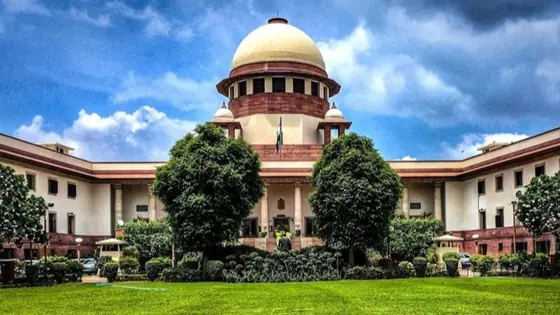
Liberating PoK the only unfinished agenda now: VHP chief Alok Kumar after SC verdict on Article 370 (WATCH)
Reacting to the verdict, international working president and senior advocate, Alok Kumar said that the judgment of the Supreme Court is like a 'tribute of a grateful nation to the supreme sacrifice of Dr Shyama Prasad Mukherjee'.
The Vishva Hindu Parishad on Monday welcomed the Supreme court judgment upholding the abrogation of Article 370 in Jammu and Kashmir. Reacting to the verdict, international working president and senior advocate, Alok Kumar said that the judgment of the Supreme Court is like a 'tribute of a grateful nation to the supreme sacrifice of Dr Shyama Prasad Mukherjee'.

'Today's judgement underlines that the Letter of Accession signed by Maharaja Hari Singh in 1947-48 was final, valid and irrevocable. Jammu and Kashmir has always been and will always be an integral part of India." he said.
'Due to some political misunderstandings, the then political leadership had given a special status to Jammu and Kashmir through Article 370. The Parliament of India had watered down this Article. But still there were some questions due to the pendency of this case. They have been cleared after today's verdict. We are confident that the speedy development in Jammu and Kashmir will continue to grow at this pace,' he added.
The VHP leader said that the "only unfinished agenda in Jammu and Kashmir is the liberation of Pak-occupied Kashmir from the clutches of Pakistan".
We are confident that a strong India and a determined Government will be able to free the PoK soon, he added.
The Supreme Court endorsed the Central government's decision to revoke the special status of Jammu and Kashmir under Article 370 of the Constitution and mandated elections for the region in the upcoming year. Chief Justice of India DY Chandrachud, delivering the majority judgment of the Supreme Court, clarified that Article 370 was a temporary provision intended to facilitate Jammu and Kashmir's integration with India.
Highlighting that Jammu and Kashmir should be treated on par with other states "at the earliest and as soon as possible," the Supreme Court directed that state elections be conducted by September 30, 2024. The court explained that upon joining India, Jammu and Kashmir did not retain sovereignty, and its constituent assembly ceased to exist upon the merger.
Chief Justice Chandrachud emphasized that the Jammu and Kashmir constituent assembly was not meant to be a permanent entity; it was solely established to frame the Constitution, and its recommendations were not binding on the President. Despite the absence of "internal sovereignty," the court clarified why the state continued to enjoy special status after the merger.
The Supreme Court elaborated that when the constituent assembly ceased to exist, the special condition for the introduction of Article 370 also ceased to exist. However, the situation in the state persisted, leading to the continuation of the Article. The court drew attention to the fact that all states in the country possess legislative and executive powers to varying degrees, citing examples such as Article 371A to 371J, representing special arrangements for different states, and characterized it as a form of asymmetric federalism. The Supreme Court concluded that Jammu and Kashmir does not possess internal sovereignty distinct from other states.
The bench delivered three separate judgments, with Chief Justice Chandrachud, Justice BR Gavai, and Justice Surya Kant contributing to one, Justice Sanjay Kishan Kaul providing a concurring judgment, and Justice Sanjiv Khanna delivering a third judgment in concurrence with the other two.